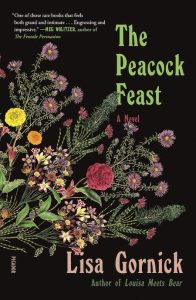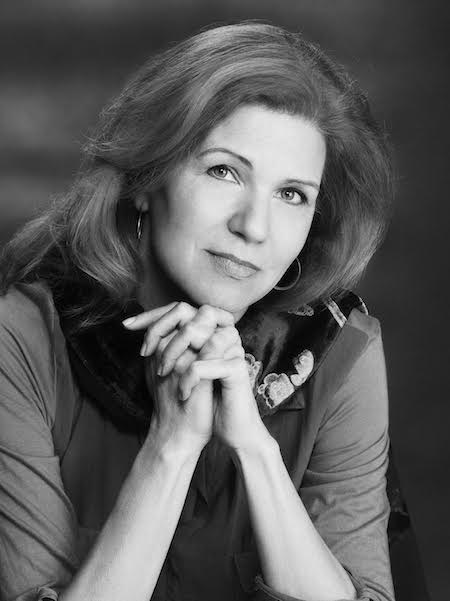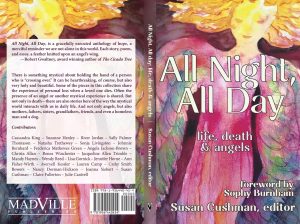For previous posts on the contributors, see these authors who were all featured in the first section of the book, “Mystics and Messengers.”
And from the second section of the book, “Angels Watching Over Me.”
From the third section of the book, “All in the Family: Mothers, Fathers, Sisters, and Grandfathers.”
Next up?
Lisa Gornick
Lisa is one of several authors that I have never met who contributed to this book. I found her in a serendipitous way—I was researching peacocks and resurrection for my story, “Three Beautiful  Men and a Peacock,” in the Introduction, and her name came up as the author of the book, The Peacock Feast, a “sweeping family drama, an exploration of the meaning of art and the art of dying.” I was hooked and wanted to know more about this woman. I loved listening to her playlist for writing The Peacock Feast, and reading about her fascinating life. Authors are generous people (and often eager for an opportunity to share their writing with a new audience) and Lisa was so kind to agree to write an essay for an anthology edited by someone she didn’t know. I would love to meet her in person one day. (And I’m overdue for a visit to New York City!) Here’s more about Lisa:
Men and a Peacock,” in the Introduction, and her name came up as the author of the book, The Peacock Feast, a “sweeping family drama, an exploration of the meaning of art and the art of dying.” I was hooked and wanted to know more about this woman. I loved listening to her playlist for writing The Peacock Feast, and reading about her fascinating life. Authors are generous people (and often eager for an opportunity to share their writing with a new audience) and Lisa was so kind to agree to write an essay for an anthology edited by someone she didn’t know. I would love to meet her in person one day. (And I’m overdue for a visit to New York City!) Here’s more about Lisa:
Trained as a psychoanalyst, she worked for many years in hospitals and private practice. As a writer, she has published stories, essays, and four novels: The Peacock Feast, Louisa Meets Bear, Tinderbox, and A Private Sorcery. She lives in Manhattan and spends her free time watching boats on the Hudson, playing Bach on an ancient piano, making an occasional fruit cobbler for her husband, and sending her two sons more texts than they want. Oh, and she has an upcoming novel, Ana Turns, to be published by Keylight Books in November, 2023.
“The End”
My other “tie” to Lisa is that like me, she wrote about her father’s death in her essay, “The End.” But he was 85, whereas my father was only 68. Here’s an excerpt from her essay, which gives you an idea of the richness of their lives and the depth and complication of their relationship.
When my father became terminally ill at the age of eighty-five, something remarkable happened: I discovered a depth of devotion to him I’d not known was there. This came as a surprise because of what I had long thought was the nature of our relationship—warm and for the most part free of conflict, but marked by a distance between us, in part, due to our each being fiercely independent. . . . Even when he was home, weeks would sometimes pass without our speaking—and then, impromptu, he’d come for Sunday diner: pour himself a scotch from the bottle we kept for him, and inevitably the atlas or globe would find its way to the kitchen table while he discussed Russia’s role in World War II with my younger son, or Lucretius’ prescient understanding of atomic theory with my older son, or developments in plastics and LED technology with my husband. My own pursuits, as a psychoanalyst and then as a fiction writer, were a language as a scientist he didn’t speak—Freud, in his view, a witch doctor; hi interest in contemporary fiction having halted with Philip Roth—though he did ask me each time I served him my roasted cauliflower how I cooked it.
I’m not going to share excerpts about the process of Lisa’s father’s death and how she handled it. You’ll have get the book to read all about it. And you won’t want to miss it!

